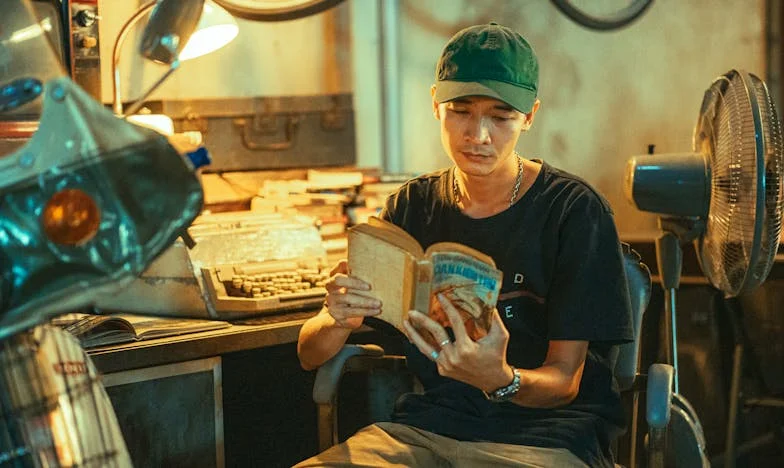The Weight of My Father’s Name
“You can’t just sit there and pretend nothing happened!” my mom screams from the kitchen, her voice slicing through the silence of our old house like a knife. I’m frozen on the living room couch, clutching my phone, trying to breathe through the panic that’s tightening my chest. My little brother, Ben, is hunched in the doorway, eyes wide and scared. The TV blares the local news, but the only sound I hear is my dad’s name—over and over, like a curse.
“I’m not pretending,” I manage to whisper, though my voice is barely audible. “I just… I don’t know what to do.”
The phone rings again. Another reporter, probably. Or maybe one of the neighbors who used to smile at us in church. I let it go to voicemail. My mom slams a cabinet shut. “We have to decide, Emily. Are we staying here or not?”
That’s when the news anchor says it: “John Miller, beloved local teacher, arrested on charges of fraud and embezzlement. Community in shock.”
My father. The man who taught me how to ride a bike, who never missed a school play, who told me that hard work and honesty were everything. Now he’s the town’s monster.
I want to scream. I want to run. I want to believe it’s all a mistake, but the evidence is everywhere: the bank statements, the police knocking at our door at 2 a.m., my dad’s haunted eyes as they led him away in handcuffs.
Ben moves closer, his voice trembling. “Emily, are we gonna get kicked out of school?”
I pull him into a hug, even though my arms feel heavy and useless. “No, buddy. We’re not going anywhere. I promise.”
But I’m lying. Already, my phone is buzzing with texts: Did you know? Is it true? My best friend, Rachel, hasn’t called since it happened. At school, whispers follow me down the hall. Someone wrote THIEF’S DAUGHTER on my locker in red marker. The teachers look at me with pity, but nobody knows what to say.
Mom spends her days glued to the kitchen table, surrounded by bills and legal papers. At night, I hear her crying through the wall. She doesn’t talk to me unless it’s about groceries or what to do with the house. Dad calls from jail, but I can’t bring myself to answer. I replay our last conversation: “I’m so sorry, Em. I never wanted this for you. For any of you.”
I want to scream at him. I want to ask how he could betray us, betray everything he taught me. Instead, I just sit on my bed, staring at the ceiling, willing myself not to feel anything at all.
One night, Mom breaks the silence. “We can’t stay here, Emily. The bank is taking the house.”
“Where will we go?” I ask, my voice hollow.
“Aunt Linda’s. In Columbus. Just for a while, until we figure things out.”
I nod, but inside, something shatters. This house, this town—it’s all I’ve ever known. But now the walls feel too tight, pressing in with judgment and shame. I pack my things in silence. Ben clings to me like a shadow.
At Aunt Linda’s, everything smells like cinnamon and old books. She hugs us tight and tells us we’ll get through this. I don’t believe her. School is different here—nobody knows who I am, but I flinch every time someone asks about my family. I keep my head down, get good grades, try to disappear.
Late at night, I lie awake, replaying every moment, every warning sign I ignored: the late nights at Dad’s desk, the arguments with Mom about money, the way he’d hug us a little too long, like he was afraid to let go.
One afternoon, I catch Ben sitting on the floor, tearing up an old photograph of Dad holding us at the county fair. He looks at me, tears streaming down his face. “I hate him,” he says. “Why did he do it?”
I don’t have an answer. All I know is I’m angry, too—angry at Dad, angry at Mom for pretending everything was fine, angry at myself for not seeing it sooner.
We visit Dad once, months later. The jail is cold and smells like bleach. He looks smaller, older. Ben refuses to look at him. Mom cries the whole time. When it’s my turn, Dad reaches for my hand. “I love you, Em. Please believe me.”
I pull away. “You lied to us. How can I ever trust you again?”
He just nods, tears in his eyes. “I’m so sorry.”
Afterward, I sit in the car, numb. I want to forgive him, but I don’t know how. The man I thought was my hero is just a man—a flawed, broken one.
Time passes. We settle into a new routine. Mom gets a job at the library. Ben makes a friend on the soccer team. I graduate high school, get accepted to Ohio State. Life moves on, but the ache never quite goes away.
Sometimes, people ask about my family. I tell them the truth—about my dad, about the scandal, about how we survived. Some people judge. Others just listen. I learn that shame only has power if I let it.
Years later, I visit Dad. He’s out of prison, living in a small apartment, working at a hardware store. We sit on the porch, drinking sweet tea. He looks at me, hope flickering in his eyes. “Do you think you can ever forgive me?”
I take a deep breath. “I’m trying, Dad. That’s all I can promise.”
As I drive home, I wonder: Are we more than the worst thing we’ve ever done—or the worst thing that’s ever happened to us? Can broken families ever truly heal? What would you do if the person you loved most let you down?
